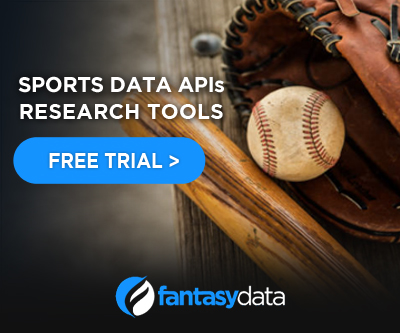Improve Your Fantasy Baseball Draft
When playing in a fantasy baseball league, the most important thing to remember is that it should be fun, that’s what fantasy leagues were originally designed for. If you’re not enjoying your league, then you should probably find a new one to play in, or improve on the league by making some changes.
Most of the leagues that I play in are standard where the rules are all pretty much the same. It’s the home league in which we may have quirky rules. There’s nothing wrong with quirky. Hey, some changes can spice things up. I’m here today to tell you how you can make your league better.
Draft Order

How can you keep owners interested all season long? Have next season’s draft order determined by order of finish this season. When I say this, I don’t mean whichever team finishes last
Streaming
Personally, I like an active owner, someone who is not afraid to make 200 moves during a season and isn’t loyal to any of his player, but those owners can also annoy people because they seem to live at their computer and always get players first. You can stop or limit this kind of activity by charging real money for each move (Free Agent Acquisition Budget with players not being allowed to be purchased for zero also accomplishes this). In my home league, to build up the pot at the end of the season, every move you make costs a certain dollar amount. The first five roster moves are $1, the next five $2, and on and on. Each player moved to the injured list is $1. Every player moved via trade is also $1. This accomplishes two things, builds up the pot and keeps those who like to stream in check.
Prize Money
Most leagues divide up some kind of reward for finishing first, usually top three. In my home league, we also give weekly prizes. Whichever team has the most points that week wins $40. My league is a points-based league so that was easy to choose. If you’re in a rotisserie league, it could be whichever team hits the most HRs, has the most Ks, whatever stat you want to choose. Once again, this keep owners more actively involved and also a way to lower the entry fee for everyone.
Trade Deadline

Rule Changes
This one is quite simple. No rule should be changed after the draft unless everyone and I do mean everyone votes in favor of it. If you’re in a league in which the commissioner is changing rules post-draft, it’s time to find a new league. If one owner votes against a proposed change post draft, then that rule doesn’t take place until next season. You may think, it’s just one owner being a pain in the rear, but perhaps they made a draft pick/s or has a strategy for this season that involved that rule. No changes after the draft.
Trade Vetoes
This one is also quite simple. Unless there is collusion, no trades should be disallowed. It’s not your job as an owner to judge another owner’s trade. There have been so many trades over the years that I have seen and thought, wow, that owner got robbed, only to find out later that season, that the “robbed” owner ended up winning the deal. Plus, an owner will only get better by making mistakes, not by having other owners try and correct those mistakes and let’s face it when you veto a trade, it’s usually not because the trade is so awful, but because it hurts your chances of winning. Everyone is worried about number one.
Constitution
Have a written constitution that is easily available for all owners to see. This will cover any problems that come up during the season. This way you don’t have to worry about a commissioner making up the rules as he or she goes along. I’m the first to admit however that there will be situations that arise during your league year that will not be covered by your constitution. Once again, I’d prefer the commissioner not be the final arbiter, not if they play in the league, and especially if money is involved. We like to designate someone outside the league, someone we trust to be that final arbiter. In my home league, it’s almost always someone I work with. They know fantasy, they know the rules in most leagues, and they will render a fair judgment. You should find someone like that also. It’s not like it’s all that hard to find your favorite fantasy analyst on Twitter. Most of us will answer your questions. Find one you like and ask them if they would do that for you. The worst thing they can say is no.
These are just a few ideas you can try or perhaps you have some of your own. The bottom line is, as always, fantasy leagues are designed to be fun, and if you’re not having fun, there are plenty of leagues out there.
